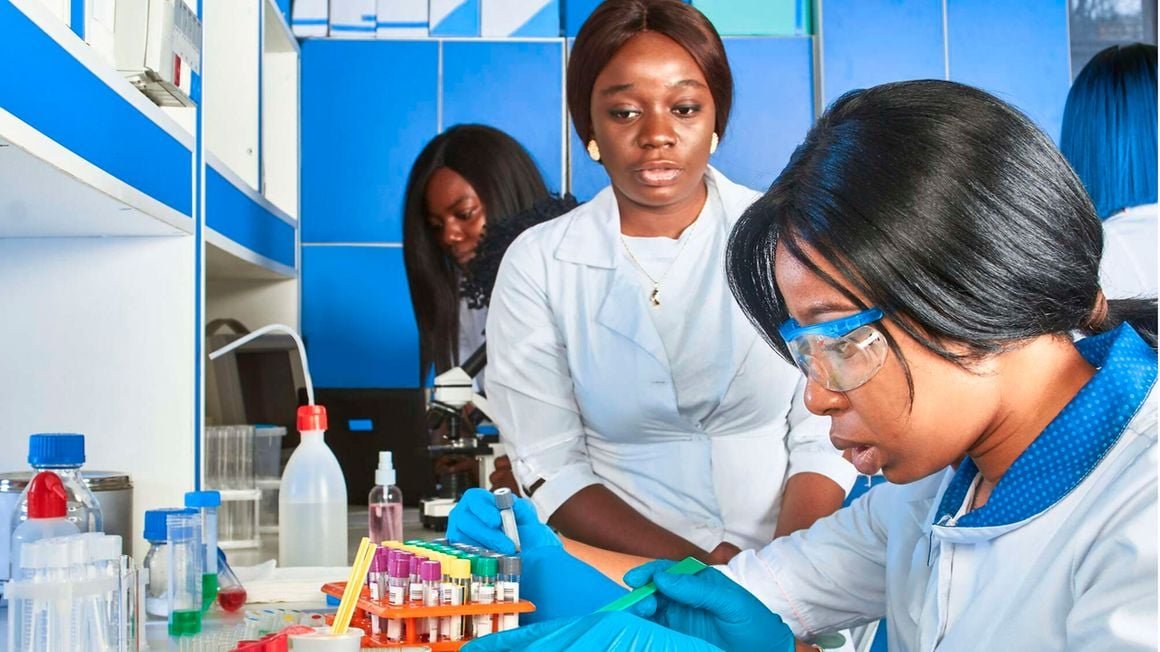Thelma Krug, vice-president of the UN IPCC, emphasised the need for improved scientific collaboration between the Global North and Global South in her speech.

Numerous studies have found that the continent of Africa produces far too little scientific knowledge. Studies conducted between 2012 and 2021 using data from Web of Science and Scopus reveal that despite having about 16% of the world’s population, Africa only contributed to 3% of all scientific publications during that time.
A University of KwaZulu-Natal study, the results of which were published in the Journal of Scientometric Research last year, found that Africa only contributes 7.6% of all scientific advances and accounts for one-third of all international publications in tropical medicine.
The North of the continent is more productive than the sub-Saharan nations of Africa, with six nations—South Africa, Egypt, Tunisia, Algeria, Nigeria, and Morocco—producing about three-quarters of the sample’s scientific publications. There is a huge disparity between the countries on the continent.
The study noted that only 26% of the continent’s countries, or 89 percent of the countries, were responsible for 74% of the continent’s total number of scientific publications.
Scientists have now emphasised the necessity for international institutions to include African actors in research during their presentations at the Annual Meeting of the Global Research Council, which began on June 1 in The Hague, Netherlands.
Yaya Sangare, executive secretary of the Programme d’Appui Stratégique à la Recherche Scientifique-PASRES, an Ivory Coast-based research support organization, said that scientists frequently present solutions that are developed outside of Africa and without the involvement of Africa.
Between 2001 and 2018, there were 508,102 scientific publications from Africa, compared to 6,688,920 from the rest of the world.
“The key to offering practical solutions is having a thorough understanding of local issues. To find practical and effective solutions locally, this calls for fair partnerships and a thorough understanding of the issues, according to Ottoline Leyser, executive director of UK Research and Innovation.
Thelma Krug, vice-president of the UN Intergovernmental Panel on Climate Change (IPCC), emphasised the need for improved scientific collaboration between the Global North and Global South in her speech.
According to Krug, “the IPCC examines the scientific literature produced throughout the world and finds significant knowledge gaps in the Global South.”
She cited research on solar geoengineering, the modification of solar radiation to lessen the effects of climate change, that she claims is being done without the involvement of countries in the South, which will be severely impacted if this technology is used on a global scale.
In this case, Krug said, “research funders need to keep in mind that a little more fairness is needed.”
By enhancing the capabilities of neighbourhood research teams, funding organisations, in Krug’s opinion, could aid in closing these knowledge gaps.
The new Working Group on Multilateral Engagement was established by the Global Research Council (GRC), an organisation that brings together the world’s major public funding agencies, with the goal of fostering international cooperation among scientists.
“The GRC was designed as a forum for networking and best practise exchange among heads of funding agencies. And that’s significant because, for instance, it makes it simpler to launch a joint call for proposals when we all agree on a set of guiding principles,” according to Euclides de Mesquita Neto, executive secretary of the GRC.
Science Europe’s president, Marc Schiltz, stated that the organisation has been working for years to create easier mechanisms by which funders can encourage cross-border and international collaborations, such as having proposals evaluated by a single agency even though all parties involved contribute to the funding.
In the end, the belief is that those who are most familiar with the problems are best equipped to address them, according to Julie Shouldice, president of the International Development Research Centre.
Scientist Radhamany Sooryamoorthy of the University of KwaZulu-Natal in South Africa discovered that over the previous 19 years, scientific publications in Africa have increased 20 times.
Between 2001 and 2018, there were 508,102 scientific publications from Africa, compared to 6,688,920 from the rest of the world. In January 2022, the Journal of Scientific Research published his findings.
South Africa, Nigeria, Kenya, Ethiopia, Uganda, and Tanzania are among Africa’s top 10 science-producing nations. Representatives of FAPESP, JST, RCN, and DFG launched the initiative two years ago, and it was approved by the GRC Governing Board in March 2023. South Africa, Nigeria, Kenya, Ethiopia, Uganda, and Tanzania are among these nations.
The money used to support research cannot cross international borders due to legal restrictions, according to Marcus Wilms, Director of International Affairs for the DFG. Bilateral collaborations have been used to address this issue, but when multiple partners are involved, it becomes more difficult. Managing the various expectations that different entities have for a research project’s findings is one of the biggest challenges.
“Organizations like the DFG aim for knowledge impact. We think this is the source of the other effects, like the social and economic ones. However, some organisations have very clear missions and focus on achieving a single objective, while others’ activities are compelled to be connected to national priorities. Therefore, the working group’s goal is to develop new mechanisms that will make all of this articulation easier, he said.